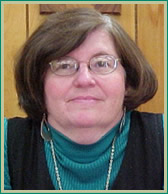
The Silver Rule
|
 |
|
| Maybeth Conway Senior Associate |
Please take a moment to dust off your memory. When was the first time you learned about the Golden Rule? My first encounter that I can recall came at the embarrassingly early age of 5. I was an exuberant and probably overindulged kindergartner and my family was planning my birthday party. When it came time to finalize the guest list, I boldly announced that I did not want my neighbor, Jane, to come to my party. Party planning instantly came to an abrupt halt as my parents shifted into moral education mode. They gently asked me why I wanted to exclude Jane. I already knew better than to tell them that she just wasn’t cool enough, so I said nothing. My dad then calmly introduced me to the Golden Rule. In his gentle yet serious voice, he asked me to think about how I would feel if one of my friends didn’t invite me to her party. I wanted to give him a flip response and tell him that none of my friends would do that to me, but somehow I knew better. He waited patiently until I grudgingly admitted that I would be very sad. That’s when I first recall hearing those familiar words: Do unto others as you would have them do unto you. He asked me to repeat the phrase a few times and explain what I thought it meant. Needless to say, I got the message and Jane came to my party.
Sixty years later, I still remember that incident with clarity and chagrin. In the years that followed, my parents had to remind me of the Golden Rule more frequently than I’d care to admit. Gradually, they helped me to deepen my appreciation of the phrase and the implicit values that it conveys.
Wise and steadfast as my parents were when it came to showing concern and compassion for others, I’ve come to see that they may have downplayed another arena where compassion is equally important: compassion for oneself. For good Irish Catholics transplanted into rugged Puritanical New England soil, the notion of self-compassion was seldom promoted. After all, weren’t we all Sinners in the Hands of an Angry God, and doesn’t pride goeth before a fall? Somehow, care and concern for self didn’t mesh well with these views. Yet, if my parents were still with us today, I’m confident that they would be open to the ancient philosophical traditions as well as the recent scholarly research that promotes self-compassion as the foundation for personal happiness and the deepest compassion for others. I trust that they would happily embrace a new rule that I’d like to call the Silver Rule: Do unto yourself as you would do unto your most treasured friend.
The concept of self-compassion has actually been explored in some religious and philosophical traditions for centuries, but it has only surfaced as a subject for scholarly research within the past few decades. Kristen Neff from the University of Texas at Austin has taken a leadership role in this emerging exploration. Her research is both compelling and refreshingly clear. For her, self-compassion simply means that we extend kindness and empathy to ourselves in instances of perceived inadequacy, failure, or general suffering as we honor and accept our shared humanness. (www.self-compassion.org) She goes on to identify three key elements of self-compassion: Self-Kindness, Common Humanity, and Mindfulness. As we cultivate these three elements, her research demonstrates that we will experience higher levels of well-being and psychological strengths, including happiness, optimism, wisdom, personal initiative, emotional intelligence, motivation, positive body image, and resilient coping. This sure sounds like a worthy endeavor to me!
The first element of self-compassion is Self-Kindness. This entails being warm and understanding toward ourselves when we suffer, fail, or feel inadequate. Rather than ignoring our pain or flagellating ourselves with self-criticism, we are challenged to silence that pesky self-critical voice that tells us we are too lazy, too fat, too stupid, or any of a host of similar statements that only foster shame, guilt, depression, and eventually despair. Instead, we are encouraged to grow our sense of self-acceptance, flaws and all. When confronted with our personal weaknesses or painful life experiences, we acknowledge their inevitability and comfort ourselves as we go through them. With the same kindness we would show to a discouraged friend, we give ourselves permission to be imperfect, fearful, and sometimes overwhelmed.
The second element of self-compassion involves a sense of our Common Humanity. In its simplest form, we acknowledge that we’re all in the same boat. When confronted with our personal limitations or any of life’s myriad frustrations, we often experience a painful sense of isolation, irrationally telling ourselves that we are alone in our suffering and our inadequacy. To cultivate this element, we need to refute that notion and acknowledge suffering and a sense of inadequacy as an inevitable part of the human experience. By moving from “poor me” to “poor us,” we naturally develop a deeper sense of connectedness. We replace egocentric self-absorption with an authentic empathy for ourselves and others.
Mindfulness is the third element of self-compassion. While this term has come to mean many things to many people, Neff describes mindfulness as a non-judgmental, receptive state of mind in which one observes thoughts and feelings as they are, without suppression, denial, or self-condemnation. It is here that we learn to move from mindless negative self-talk to a more honest and accepting place where we bravely see things as they are, no more and no less. By taking ownership of our fears and negative emotions, embracing them tenderly, and acknowledging their universality, we can create a free space wherein we respond to life’s challenges with greater clarity and wisdom.
The cultivation of self-compassion is a perennial challenge. Self-doubt and self-criticism do not give way easily to self-kindness. Nor is it easy to balance our natural striving for individuality with our awareness of our common humanity. Without an ongoing commitment to mindfulness, we can quickly drift back into patterns of negative reactivity. That’s why we need the Silver Rule. If we could begin each day with a commitment to “do unto others as we would have them do unto us” and an equally strong commitment to “do unto ourselves as we would do unto our most treasured friend," then surely we would find greater personal acceptance and happiness. We would also be doing our small part in contributing to the creation of a more compassionate world.
![]()
Center for Empowered Leadership ®
Email: info@cfel.org
Phone: 1.609.259.7911
